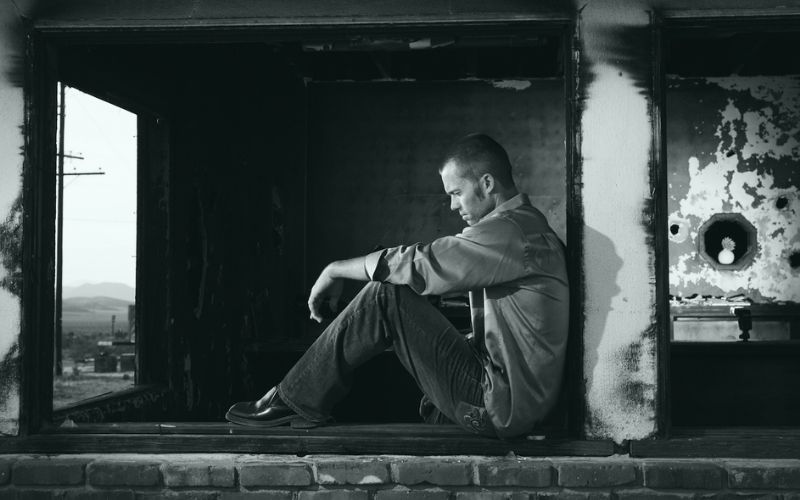My name is Ryan Skinner, and I am a recovering addict, but I confronted my addiction and turned my life around with the love and support of my friends, family and faith.
Unfortunately, the spread of COVID-19 has left countless people in quarantine, locked away from their friends and family. Between the closure of churches and public places and the enforcement of social distancing protocols, recovering addicts are left struggling with isolation and anxiety, two of the biggest factors in relapse.
During this period of social isolation, anxiety and uncertainty, recovering addicts need heightened support to stay strong and avoid spiraling into relapse.
Isolation and relapse
One of the leading factors in drug use and relapse is the fear that nobody’s there for you when you need them. The urge to go back to drugs or alcohol can seem overwhelming even when you’re surrounded by supportive friends and family members, let alone when you’re by yourself.
In fact, just in the few months of the COVID-19 outbreak in the United States, mental health professionals have already noted a striking increase in relapses among recovering addicts. Because of social distancing protocols, many recovering addicts have lost access to the one thing that helps them cope: time with friends and family.
Staying strong without access to support groups
The true measure of recovery is your ability to resist relapse even when it feels like nothing else is working.
In ordinary circumstances, I meet once a week with my sponsor and my support group to stay strong in the face of relapse. However, just as with many other businesses and organizations, support groups have been forced to shut their doors, leaving countless recovering addicts without this critical part of their recovery.
Fortunately, many of these groups – like Alcoholics Anonymous and Narcotics Anonymous – have started offering virtual groups to help recovering addicts keep social, keep sane and keep away from the possibility of relapse.
To help deter feelings of anxiety and isolation, finding a group to help you or someone you know cope is more important now than ever. Although a virtual environment differs from standard in-person meetings, the concepts and benefits of virtual groups remain the same: to show recovering addicts that they are not alone and that they are strong enough to overcome their addictions.
Obtaining addiction treatment while in lockdown
The COVID-19 situation has impacted current addicts just as it has recovering addicts. With the limitation of human contact, it is becoming more difficult to access addiction treatment, particularly for people under “shelter-in-place” orders.
However, addiction clinics around the country have been working overtime to help ensure that resources are available whenever someone needs them. In fact, many clinics are hiring more staff with each passing week, and some are even offering telemedicine counseling and curbside delivery for medications, further increasing the resources that addicts have at their disposal.
The importance of friends and family in the fight against relapse
As I mentioned earlier, one of the only things that kept me going was knowing that I had to get clean for my family. Through friendships, family ties and my faith, I was able to rise out of that pit of addiction and become the man I am today. Without that support from my loved ones, I may never have made it this far.
Oftentimes, family members are the first people to notice when a person starts showing signs or symptoms of addiction, putting them in a unique position to lend support before the addiction fully takes hold of the person’s life.
Typical signs to watch out for may include a change in attitude, loss of daily structure, poor self-care, elevated stress, emotional reactivity and impulsive behavior, among physical symptoms of either intoxication or withdrawal. With the stress of the pandemic mounting and the isolation that it necessitates, this familial or friendly attention becomes so much more important.
Unfortunately, not everybody gets the help that they deserve, instead being ridiculed or cast aside by their loved ones who blame addiction on choice rather than disease. The stigma against drug addiction is one of the greatest hurdles between any addict and recovery. What they need isn’t shame, but love and support.
The path forward
As the coronavirus continues to spread, the future cannot be certain. With isolation becoming the new norm and anxiety becoming a part of everyday life, support from friends, family and sponsors is critical.
In order to cope with COVID-19 or other stressors and avoid succumbing to relapse, addicts need heightened attention from friends and families. Remember to keep up the social connection, even if from a distance, because an addict’s path forward can only be walked together.
Ryan Skinner is founder and co-owner of Summit Financial Partners and author of Taking Stock: Protect Your Wealth and Create Reliable Income for a Happy and Secure Retirement. Visit Ryan’s website to learn more about his addiction work and his mission at ryantakingstock.com.


